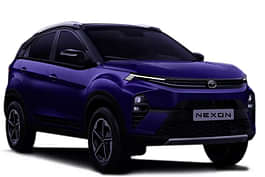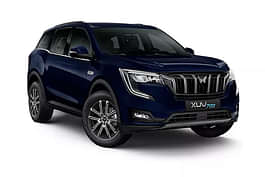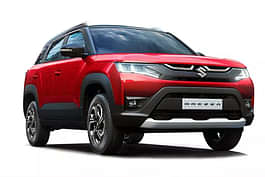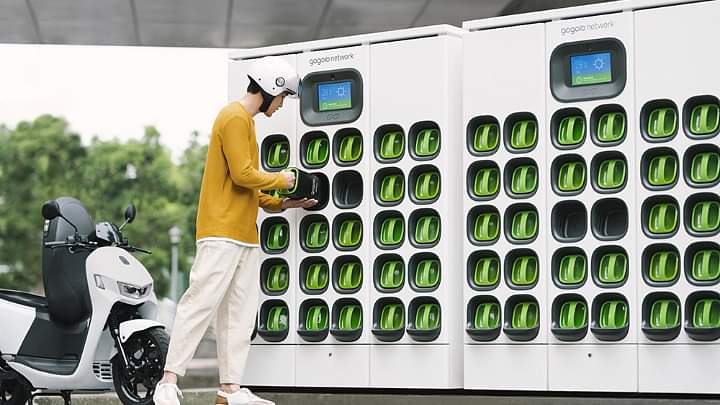
Electric mobility is taking a flight with time, and with almost all automotive manufacturers on board, this mobility technology has some shortcomings. Accustomed to internal combustion engines, there are some compromises related to an electric vehicle that has to be borne by the customer. So as to eliminate these set backs, automotive manufacturers have thorough research and development operations going on along with tests on prototypes and much more. One of the major concerns in electric vehicle drivetrain is the battery technology which has turned out to be a boon in many cases but still has some flaws which need to be rectified.
In a country like India, which lacks a fully flourished electric vehicle charging infrastructure, people are skeptical about using electric vehicles on long trips. Moreover, the real life range of an electric vehicle is drastically affected by a variety of factors, and a person cannot rely on the manufacturer promised range or even the power consumption levels returned by the smart systems of the vehicle. A trip needs to be significantly well planned as per the possibility of charging stations on a route and then waiting at that place for the vehicle to charge. Therefore, electric vehicle manufacturers decided to look out for other possibilities to modify battery technology for the masses to eliminate these short comings.
One of the ideas which have been around in the market for a long time is the battery swapping technology, where a person can directly swap a drained battery for a recharged one. This service is also called On The Go (OTG) Battery. So, here we are going to present all the boons and banes of battery charging and battery swapping technologies for a clarity from all perspectives. Stay Tuned!

Battery Charging has been the conventional way of recharging the batteries in an electric vehicle from the time they have been introduced to the mankind. These vehicles feature a fixed kind of battery pack, which comes along with the car and is owned by the individual. The batteries in the case of cars with an electric powertrain are embedded into the floor of the car. This unique placement of the heavy battery pack brings down the centre of mass of a vehicle significantly and aids to stability with improved driving dynamics. This also decreases the risks of a vehicle roll-over in case of an accident. These battery packs are treated to be a complete entity along with the car itself, with individuals having the freedom to charge the battery as per their own convenience. Having owned the battery pack, an individual's charging pattern and care would determine the health of the battery in the long run and would give a peace of mind to the user without any uncertainty on the quality of the battery being used.
These kinds of battery packs have their own shortcomings as they increase the weight of the vehicle, which hinders performance and efficiency. In a hustle to extract the best out of these electric powertrains, manufacturers have to fit these cars with batteries of higher capacity, which make the vehicle expensive, and cost cutting is prevalent in almost every corner of the vehicle. With these batteries having a larger capacity, electric owners usually find it difficult to cope up with the long charging times and have to look out for fast chargers. With regular charging and discharging, batteries face degradation in terms of performance and are not replaceable in most of the cases. This increases the depreciation percentage of the vehicle when compared to the ones equipped with an internal combustion engine. The batteries, if replaceable, may cost a fortune and might not be worth the replacement when compared to the current value of the car itself.
Also Read: Bharat Petroleum Brings 10 EV Fast Charging Corridor - Details
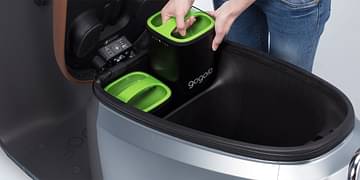
Battery Swapping has turned out to be a boon in many cases in terms of battery technology. This technology could be compared with the mobile phones in the good olden times when we could flip off the back cover of the phone and swap one battery with the other if a charger was not readily available. This technology has been thought over to be introduced to electric cars and bikes. Many start-ups are on their way to bringing this technology forward, as this has some distinct advantages when compared to battery charging.
Battery swapping can help reduce the cost of owning a vehicle as the electric vehicle can be owned with or without a battery pack. The individuals can choose from a variety of options as per their utility ranging from local commute to highway cruising. If the vehicle owner doesn't opt to buy a battery or is not being able to decide on the kind of battery pack required, they can choose a battery subscription system where the batteries can be swapped according to their travel on the go! This will reduce the hassle of vehicle depreciation as the battery can be swapped out at any instant at the power station.
Despite not having a developed battery infrastructure, the drained out battery can be swapped for a recharged one or can be removed and charged indoors! Moreover, if the owners plan to take a long trip in an electric vehicle, they can carry an extra battery pack with them. It might eat some storage space inside the vehicle but would provide with a peace of mind to have a full charge at any place at any time.
However, with these revolutions being brought about using swappable batteries, there are some shortcomings that the individuals would have to deal with. If the vehicle owner opts for a subscriptions mode for the battery, they might be uncertain of the quality of the battery they are using. This might hamper the safety, efficiency and reliability of the battery while in use.
Moreover, as every battery would face different usage and recharging patterns, the performance statistics of battery packs with similar technical specifications can turn out to be different in real life. With various enterprises involved in running the vehicle, the vehicle owner won't be able to determine the problem in a worst case scenario. One enterprise can easily blame the other with the vehicle owner left stranded. This might not only turn out to be frustrating but also heavy on the pocket in the long run.
Most of the lease based services demand an initial security, then a rent and also a penalty if the product is returned in a damaged condition. However, the case is pretty different in battery charging, where the goodies in the vehicle are taken care of by the manufacturer warranties. With the level of complication being increased, this can also increase the level of wear and tear. Remember the days when we had removable back covers in mobile phones, and we could see many with broken locks, held with tapes, rubber bands and what not!
Having discussed battery charging vs battery swapping technologies in detail, we can see that every technology has its own set of advantages and shortcomings. Many issues can be rectified with research and development or by reverse engineering a product, but we would have to live with some of them and settle our minds to bear them. As of now, there are no technologies having a clear upper hand, and the choice of these technologies might be determined by the mindset of an individual, their utility and the services available in the region where they reside in.
So, what do you think about the current battery technologies in electric vehicles? Would you feel comfortable owning and driving an electric vehicle in a country like India? Do you feel electric cars in India need some special features or modifications to last long? Share your views in the comment section. Let's get into a discussion with this in our 91Wheels Telegram and 91Wheels Whatsapp group, where you can know more about vehicles, conduct discussions on your favourite ride, and much more! You can also subscribe to our Youtube channel for our exclusive video content on the latest from the world of cars and motorcycles. Also, connect with us on Facebook, Instagram, and Twitter for more about vehicles!


